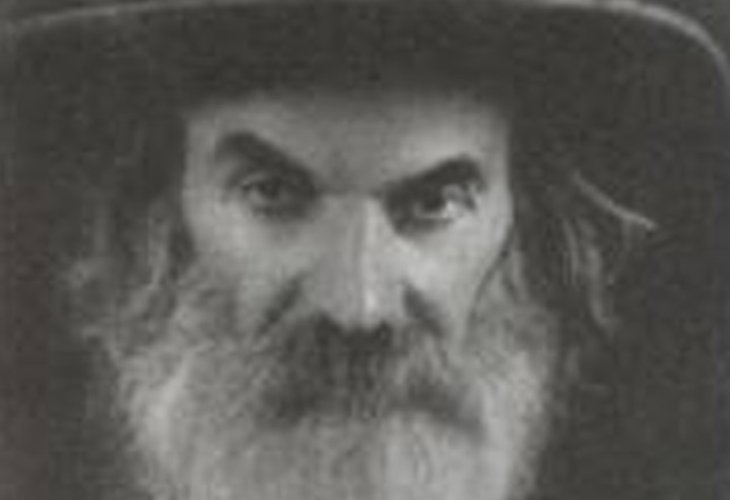Torah Personalities
Rabbi Shlomo of Zvhil: The Hidden Tzaddik Who Brought Salvation to Thousands
A remarkable life of holiness, humility, secret generosity, and spiritual leadership

Rabbi Shlomo (Goldman) of Zvhil was the fourth Rebbe of the Zvhil Chassidic dynasty and the one who established Zvhil in the Land of Israel. He was a great-grandson of Rabbi Yechiel Michl of Zlotshov, a disciple of the Baal Shem Tov.
A Childhood Marked by Hidden Ruach HaKodesh
Born in 5630 (1870), he was blessed with Divine inspiration from childhood, but due to his profound modesty he concealed it, living with simplicity and humility. At age 31 he began serving as the fourth Rebbe of Zvhil.
A Worker of Salvation
He often fasted, sometimes for three consecutive days. He became renowned as a holy man who brought about salvations. Jews of all groups, and even non-Jews, sought his counsel, and even the Bolshevik authorities held him in great respect.
Standing Firm Against Religious Persecution
Rabbi Shlomo fought fiercely to preserve Torah life in Zvhil. Even when the government banned Torah learning and threatened Siberian exile for teaching, he continued giving lessons secretly in a cellar under his home. He also sheltered orphaned children in his house.
Aliyah to Israel and Life in Concealment
Because of religious persecution, Rabbi Shlomo immigrated to the Land of Israel and lived in Jerusalem anonymously. After three years of quiet learning, a visitor from Zvhil recognized him and revealed his identity to the community. From then on, he resumed his role as Rebbe.
A Life of Precision, Purity, and Self-Discipline
His every movement was deliberate:
He ate very little and was extremely strict about kashrut.
At times he subsisted on dry bread and onions.
He spoke sparingly and walked with his head bowed.
He slept about an hour a day.
At midnight he would rise for Tikkun Chatzot and learn eight pages of Talmud Bavli with Rashi.
A Home Always Open
His door had no lock or key. He received visitors at any hour, offering blessings and guidance. His compassionate heart often moved him to tears over others’ suffering. When someone could not fast for the sake of a salvation, he would fast in their place.
Immersion and Spiritual Clarity
He was meticulous about immersing in the mikveh, which he called “yishuv” — for the clarity and calm it brought him. While in the water, he would answer halachic and spiritual questions. Upon exiting, he immediately covered his head and refrained from drying the remaining drops of purity.
Reciting All of Tehillim Regularly
Every Friday afternoon and every Erev Rosh Chodesh, he recited the entire Book of Tehillim in one flow. If he was interrupted, he began again from the start.
Great Acts of Kindness in Secret
Despite the poverty in his home, he never asked for help and sometimes refused funds sent from abroad. His acts of kindness were hidden:
He secretly financed a kollel of 60 scholars without their knowledge.
Supported an institution for children.
Rescued children from missionary hands.
Helped poor brides.
Distributed challot and Shabbat food to the needy.
Sent regular assistance to widows and the poor.
Compassion Even for Animals
He showed mercy even to animals — “even to mice,” as his followers shared. He explained that since God’s mercy is upon all His creations, so too must ours be. He taught that compassion shown below awakens mercy in Heaven above.
His Legacy
His son, Rabbi Gedalya Moshe of Zvhil, continued his holy path. He is buried in Sheikh Bader Cemetary near the government complex in Jerusalem.
A well-known and time-tested segulah is to visit his gravesite three times consecutively — Monday, Thursday, Monday, and request from Hashem a personal salvation in the merit of the tzaddik.
May his merit protect us.

